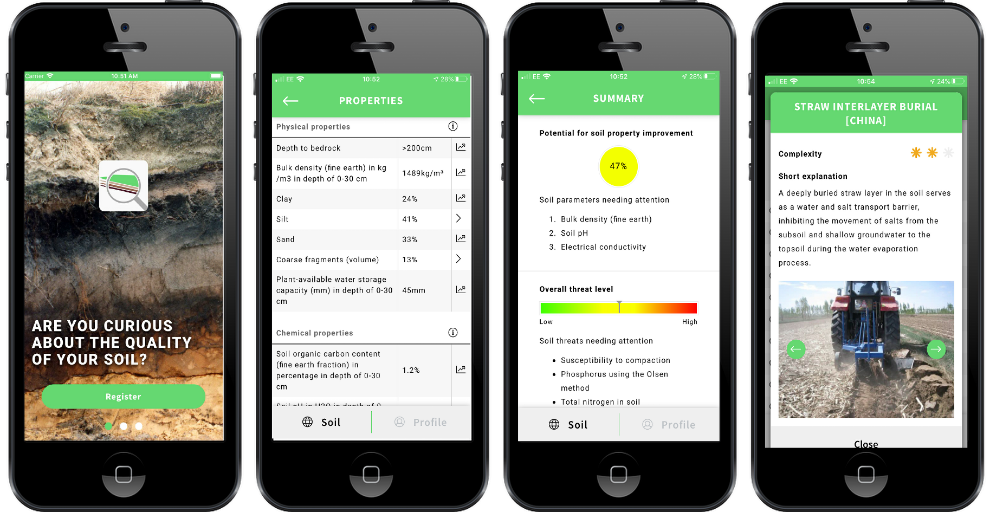New smartphone app, SQAPP, offers regional soil quality analysis

Healthy soils are crucial for productive agriculture and a thriving environment. Around the world, soils face pressure from practices that result in land degradation. On December 5, 2020 the Soil Quality Mobile App (SQAPP) officially launches, bringing soil quality analysis to your smartphone SQAPP provides insight about threats to regional soil health and recommends agricultural management practices for improvement.
SQAPP is available for free public download in Google and Apple app stores. You can use it to find information about threats to a region’s soil quality such as erosion, nutrient depletion, salinization and contamination among others. SQAPP returns available soil quality information for any location in the world, picked by the user from a world map. Rather than scoring soil quality in absolute terms, the app scores the soil quality relative to the average soil quality within areas with similar soil and climatic conditions (so-called pedo-climatic zones). For example, 80% means that only 20% of the area of the selected pedo-climatic zone is considered to have a higher indicator value than the point location being assessed.
Depending on the selected region, SQAPP will give an overview of possible soil threats. These are scored based on general, scientifically-derived threshold values. A summary shows the overall threat level and indicates which soil parameters and soil threats should be addressed to reach a better soil quality. Recommendations are provided on how this can be achieved.
This app innovates and experiments with creating a user-friendly interface that is intuitive for land managers. Scale is an important consideration when using this app. The analysis provided is based on global and regional data and should not be interpreted as exact data for a specific point on the map, such as your garden or farm field. Within the app, you may upload local data to refine the soil quality analysis and resulting recommendations. European and Chinese geography contains the richest data layers within SQAPP.
SQAPP was developed in the framework of the project iSQAPER, jointly funded by EU Horizon-2020, Government of China and Government of Switzerland.
Our collaborators include Wageningen University & Research, the European Commission’s Joint Research Center, Institute of Agricultural Resources and Regional Planning of Chinese Academy of Agricultural Sciences, Research Institute of Organic Agriculture in Switzerland and 20 other institutions. Learn more on the project’s website.